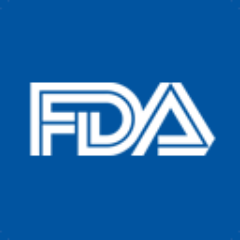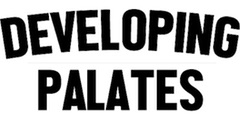The U.S. Food and Drug Administration has issued its guidance on the regulations around free samples of tobacco products. In the guidance, the FDA confirmed that the free sample ban applies to all tobacco products, subject to its authority. The Deeming Rule which went into effect on August 8, 2016, extended this ban to cigars. The guidance issued is very similar to the draft guidance published this past January. The big difference from the draft guidance is the FDA strengthened the language involving business to business exchanges.
Under the guidance distributors and retailers are prohibited from unconditionally giving out free tobacco product to consumers. There are certain scenarios where a free tobacco product may be given out – provided it is tied to a monetary transaction. These scenarios include discount and coupons, membership and reward programs, and Contests/Games of Chance. For the most part, the guidance around these scenarios was unchanged from the initial draft published in January.
The FDA defines a business to business exchange as “distributing free samples in a limited quantity (i.e., no more than necessary to achieve a business or marketing goal, such as awareness of and exposure to the product for the purpose of product or inventory selection) to another business as part of a genuine effort to sell or market a tobacco product to that business. Originally in the draft guidance, the FDA said it would not enforce regulations around business to business exchanges. Now the FDA says it does not consider the regulation around free samples to be applicable to business to business exchanges.
While there was no draft guidance issued around manufacturers and retailers donating cigars to the troops, this was not a surprise. The language that explicitly bans charitable contributions of tobacco products is traced back to the big Federal Food and Drug Cosmetic Act (21 CFR). Prohibitions are listed and on 21 CFR Section 331 line rr, it is documented that there is a ban charitable contributions of tobacco products.
Here is a recap of the guidance issued by the U.S. Food and Drug Administration around distributing free samples:
[themify_box ]
1. Discounts and Coupons
Discounts cover two scenarios. In both cases, these must be tied with a monetary transaction.
- Percentage Discount: This covers a scenario such as “Save 20% on this tobacco product”. The FDA has stated this is allowed. It is implied that a 100% discount can not be given.
- Buy X, Get Y Free: This covers a scenario such as “Buy 2, Get 1 Free”. The FDA has also stated this is allowed as it is tied to a monetary transaction.
An example of a coupon is “Buy Two, Get a Coupon Redeemable for One”. These work a little different than discounts. If the coupon is used at the time of purchase, it is allowed. If it is used later, the seller (manufacturer, distributor, or retailer) must have a way to verify both age and ID of the person redeeming the coupon and that he/she is the original purchaser. The FDA states these rules for coupons are in place to avoid minors circumventing the age requirement rules.
2. Membership and Rewards Programs
Similar to discounts and coupons, the FDA allows Membership and Rewards Programs to take place. However, it also must be tied to a product sales transaction and the person receiving the promotion must meet the FDA’s minimum age and ID requirements.
An example of one is the Punch Card Rewards program. This is done over a series of transactions. When a certain number of purchases are completed, the program allows a consumer to get a free tobacco product. An example of this is “get your tenth purchase for free”.
In the example above; at the time the consumer gets the free product, it must either be tied to a monetary transaction for the ninth or the eleventh (subsequent purchase). If it is done standalone (meaning the consumer comes in to just take credit for the free tenth product), the seller will have to use age and ID requirements to verify this is the same person who made the other purchases.
3. Contests
The FDA has stated that a contest prize (i.e. raffle, drawing, game of chance) may not be a tobacco product unless it is distributed as part of a monetary payment and is subject to minimum age and ID requirements.
One example is that if a prize of a tobacco product or discount coupon is awarded, it must be used at the time of a tobacco purchase. The tobacco product prize may not be given outside of a product purchase. The recipient (winner) would also be subject to minimum age and ID requirements.
4. Business to Business Exchanges
For this rule, the FDA says this regulation does not apply to “businesses distributing free samples in a limited quantity (i.e., no more than necessary to achieve a business or marketing goal, such as awareness of and exposure to the product for the purpose of product or inventory selection) to another business as part of a genuine effort to sell or market a tobacco product to that business.
While not explicitly stated, on the surface, it appears that this would allow scenarios such as:
- Manufacturers and Brand Owners distributing samples to retailers
- Manufacturers and Brand Owners distributing cigars at a trade show such as IPCPR where the attendees are retailers.
[/themify_box]







The Scoop With Coop – KMA Talk Radio
October 30, 2017 @ 11:57 am
[…] FDA Issues Guidance on Free Samples of Tobacco Products […]